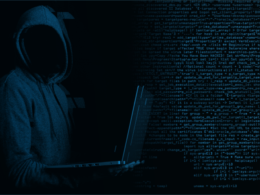In edition No. 61 of the Internet Security Week update of WhatsApp, the most rigorous law for cyber crimes, fake apps on emergency aid and much more.
News
WhatsApp Rosa: False update Low a trojan on the victims device
Malware sends automatic answers to messages on WhatsApp and other chat applications such as Signal or Telegram.
By Amer Owaida in We Live Security
Chamber approves bill that hardens penalties for cyber crimes
According to the bill, when there are attempts to coup against the elderly and vulnerable the penalty may be even greater.
In accordance
Santander must indemnify client who fell in WhatsApp cloned coup
Customer went to court after losing almost $ 3,000 in scam by WhatsApp and having no return from Santander.
By Victor Hugo Silva in Tecnoblog
Fake Apps on Emergency Aid flood Google Play
Although non -malicious, applications display advertising not related to assistance and can become dangerous in the future.
In Kaspersky Daily
A ransomware gang earned $ 260,000 in 5 days using the 7Zip utility
A ransomware gang has earned $ 260,000 in just five days simply encrypting files remotely on QNAP devices using the 7zip archiving program.
By Lawrence Abrams in Bleeping Computer
Signal 'breaks' cellebrite software that hacking iPhone
In a post on the official blog of the Signal Message Application, Moxie Marlinspike, CEO of the company, claims to have hacked Cellebrite's phones cracking tools used to extract information from devices seized by authorities. In addition, the executive warns and lists a series of vulnerabilities in the surveillance resources of the Israeli company.
By Reinaldo Zaruvni in Tecnomundo
WhatsApp online status is the target of applications for stalkers
Apps monitor when a user is online on WhatsApp and are to practice stalking, crossing information in a database.
By Ana Marques in Tecnoblog
Google hurry up update that corrects new zero -day failure at Chrome
The update corrects a total of seven safety failures in Chrome's desktop versions.
By Amer Owaida in We Live Security
Linux Bane University of Minnesota for “Committing” Malicious Code
In a rare and innovative decision, Kernel Linux project maintainers imposed the University of Minnesota (UMN) to contribute to the Linux Open Source Project.
By ax Sharma in Bleeping Computer
Hackers kidnap Apple project data and charge $ 50 million
Cybercriminals claim to have stolen projects from some of Apple's new products and are now trying to extort the technology giant, threatening to publish online documents.
By Lucas Ropek in Gizmodo
Cryptocurrency coup with false mining equipment
How fake salespeople are stealing bitcoins from much sought after cryptocurrency mining equipment buyers.
By Mikhail Sytnik in Kaspersky Daily
Events
Information Security and Data Protection: From Environmental Protection to Culture Change
- April 27, 2021, 15h - 16h
- Online Event via Youtube
- Free
Are you not yet registered on our newsletter to receive this content weekly in the email? Then subscribe through the link below:
https://conteudo.lumiun.com/semana-da-eguranca-na-internet
Share the link with your colleagues and friends.









